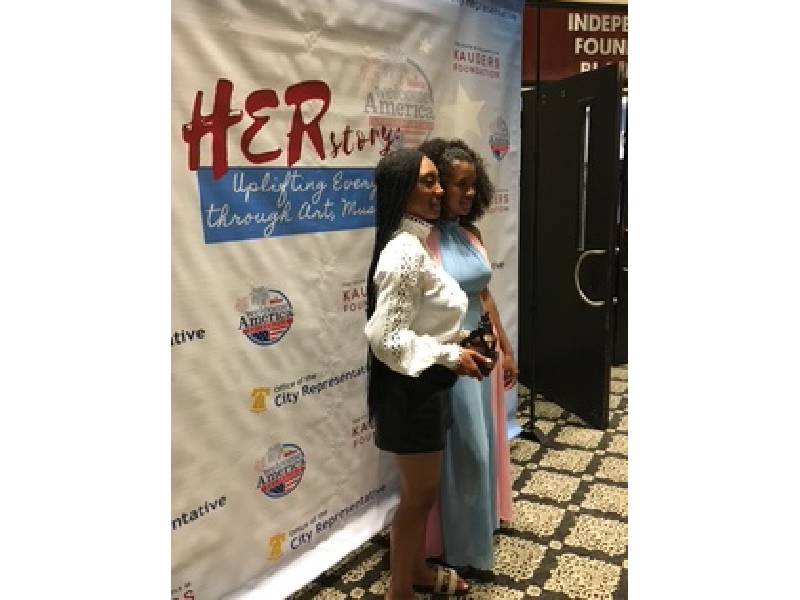Image by frimufilms on Freepik
The gaming industry, a sprawling universe filled with fantastical adventures and adrenaline-pumping challenges, hasn’t always been known for its diversity. Black gamers, a passionate and rapidly growing demographic, often navigate worlds that lack characters that reflect their experiences or stories that resonate with their realities. To create a thriving and inclusive gaming galaxy, building these diverse worlds and empowering Black gamers to be active participants, creators, and leaders within the industry is crucial.
The Power of Representation: Why We Need Black Heroes
For many, video games are a portal to fantastical escapes, a chance to explore uncharted territories or embody potent heroes. But when those worlds lack diversity, it sends a subconscious message that Black players and their stories aren’t valued. The absence of relatable characters can lead to feelings of isolation and disengagement, hindering the overall gaming experience.
On the other hand, seeing positive and well-developed Black characters can be incredibly impactful. It fosters a sense of belonging, allowing players to see themselves reflected in the game’s narrative and heroes. This can boost confidence and self-esteem and inspire a deeper connection to the game. Imagine a young Black girl picking up a controller and seeing a fearless Black heroine leading the charge, saving the day – that’s the power of representation in action.
Crafting Inclusive Game Worlds: Beyond Skin Deep
Creating inclusive game worlds goes beyond simply adding characters of color. Here are some key aspects to consider for developers:
- Diversity in Design: Skin tones, hairstyles, body types – some aspects of character design that can be expanded to encompass the rich spectrum of Black identities. Move beyond stereotypical appearances and embrace the beauty of Black diversity.
- Cultural Authenticity: When incorporating cultural elements, do your research! Consult with Black creators and communities to ensure respectful and accurate representation. Authenticity builds trust and allows players to connect with the game more deeply.
- Storytelling that Empowers: Black characters shouldn’t be relegated to sidekicks or one-dimensional tropes. Give them rich backstories, complex motivations, and the agency to drive the narrative. Let them be heroes, villains, or anything in between – endless possibilities.
- Beyond Tokenism: Don’t just add Black characters for inclusion. Make them integral parts of the game world, with storylines and relationships that feel organic and well-developed. Treat them as fully fleshed-out characters, not just boxes to tick.
Empowering Black Gamers: Building a Brighter Future
Representation is just one part of the equation. Here’s how the gaming industry can empower Black gamers to thrive:
- Supporting Black Developers: Invest in and promote games created by Black developers. Their unique perspectives and lived experiences can bring fresh narratives and innovative gameplay elements. Back their ideas and help them get their visions to life.
- Building Inclusive Communities: Foster online spaces where Black gamers can connect, share experiences, and celebrate their love for gaming without fear of harassment or discrimination. Create safe havens where they can find camaraderie and support.
- Educational Programs: Create programs that equip Black youth with the skills and knowledge to enter the gaming industry – from coding and game design to content creation and marketing. Open doors and provide pathways for them to contribute their talents.
- Amplifying Black Voices: Encourage Black gamers to share their experiences, participate in discussions, and contribute to shaping the future of gaming. Give them a platform to be heard and valued within the industry.

Photo by cottonbro studio
Celebrating Black Gaming Culture: A Rising Star
Black gaming culture is a vibrant and ever-evolving force in the gaming galaxy. Black gamers are leaving their mark on the industry, from thriving eSports communities to passionate streamers and content creators. Here are some ways we can celebrate this rise:
- Highlight Black Gaming Achievements: Recognize talented Black players, developers, and content creators. Share their stories and accomplishments to inspire the next generation and let the world know about the amazing things Black gamers are doing.
- Support Black-Owned Gaming Businesses: From hardware stores to gaming cafes owned by Black entrepreneurs, supporting these businesses strengthens the community and fosters economic empowerment. Help them grow and create a more diverse gaming ecosystem.
- Create Events and Tournaments: Organize gaming events and tournaments specifically for Black gamers. These events provide a platform for connection, competition, and showcasing gaming talent. Create spaces where Black gamers can feel celebrated and supported.
The Future of Gaming is Inclusive
The gaming industry can become more welcoming and diverse by building inclusive worlds, empowering Black gamers, and celebrating their contributions. This fosters a richer gaming experience for everyone, where creativity, innovation, and storytelling can flourish.
The Call to Action
Whether you’re a developer, a gamer, or simply an advocate for diversity, you have a role to play. Speak out against racism and discrimination in gaming. Support Black-owned businesses and developers. Uplift and amplify Black voices within the community. Together, we can build a gaming landscape that celebrates the beauty of diversity and empowers Black gamers to be the heroes they deserve to be.
This is just the beginning of the conversation. Let’s keep the dialogue going, share our ideas, and work together to create a more inclusive future for gaming.

Anand Subramanian is a freelance photographer and content writer based out of Tamil Nadu, India. Having a background in Engineering always made him curious about life on the other side of the spectrum. He leapt forward towards the Photography life and never looked back. Specializing in Documentary and Portrait photography gave him an up-close and personal view into the complexities of human beings and those experiences helped him branch out from visual to words. Today he is mentoring passionate photographers and writing about the different dimensions of the art world.





